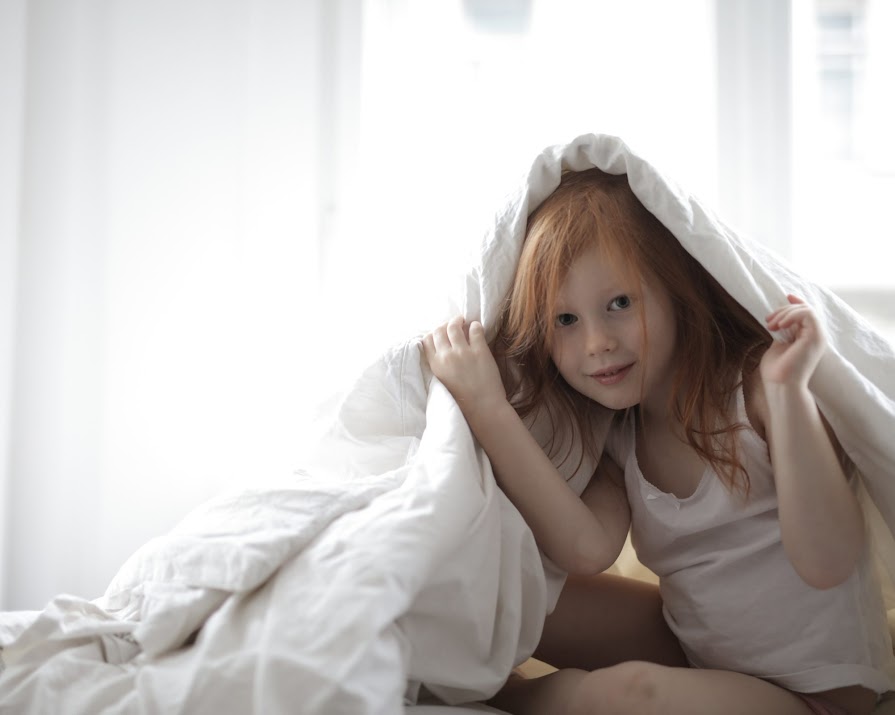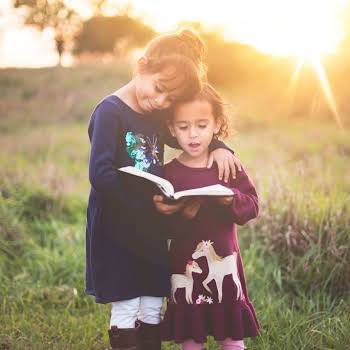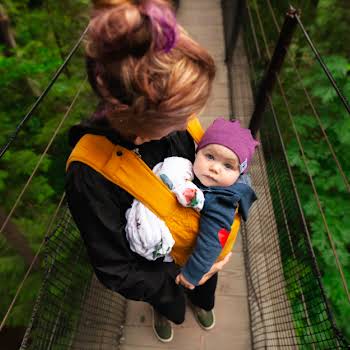
Can kids catch coronavirus? Everything we know so far about children and Covid-19
By IMAGE
02nd Apr 2020
02nd Apr 2020
Can children contract coronavirus and how serious are the symptoms if they do? Dr Laura Lenihan examines the data
Covid-19 is a new illness that can affect both adults and children. It is indeed a very worrying time for parents and their families as we wonder how and if our children will be affected.
It’s clear from the media and literature that adults, especially those over 65 or with underlying conditions, are worst affected.
But what about children? Can they get severe disease? Are they ‘super-spreaders’, a term we are now seeing far too frequently in the press?
One thing we can take solace in, is that in general, Covid-19 tends to take a more mild course in children.
In this article I will try and answer some of the biggest questions regarding coronavirus and children. Please bear in mind however that as this is such a new virus, we don’t know a huge amount, and what we do know is from limited sources.
Although this information might be correct today, it could change again tomorrow so please ensure you stay up to date with all the relevant sources — I have listed some good ones at the end of the article.
I think it’s always important to start with the basics. So let’s look very briefly at just what exactly are coronaviruses and Covid-19, the disease that it causes.
Coronaviruses are a large family of viruses that can cause illness in both animals and humans. In the past we have seen them cause diseases from the common cold, to the more severe Severe Acute Respiratory Syndrome (SARS) outbreak in China in 2003 that killed over 750 people worldwide.
Covid-19 is the disease caused by the most recently discovered coronavirus called SARS-CoV-2. This disease was unknown before the outbreak began in Wuhan, China in December 2019.
It was notified to the World Health Organisation (WHO) on the 31st December 2019. Since then it has spread to over 198 countries and there have been 960,063 cases confirmed and 49,156 deaths as of April 2 2020.
An extraordinary amount. And the first real pandemic we have seen in our time.
While we have all seen the stories on the news about adults and mainly those ones with severe disease, there is very little information about children and how they are affected.
Last month, however, some research got published on SARS-CoV2 infection in children and, thankfully, so far the data is quite reassuring.

A lot is still unknown, and the role of children in spreading the virus isn’t clear. This is why the Irish government made the decision to close schools and institute social (or physical) distancing measures in recent times.
So what do we know about children and coronavirus?
Children of all ages are at risk of getting Covid-19 and there is no difference between boys and girls.
Worldwide, children are making up a smaller amount of total number of cases (estimated roughly 2-5%) but this is possibly due to limited testing in this age group, and also the fact that most will have very mild disease.
Remember, most of this research is based out of China, where the outbreak began. Therefore in Ireland and other western countries there could be some differences.
What are the main symptoms in children?
For the majority of children, the symptoms will be mild. They can range from fever (typically above 38 degrees), dry cough, stuffy nose, or sore throat and headache. Vomiting and diarrhoea were also reported in some children with mild disease.
How severe will the disease be in children?
From looking at the literature, about 4% of children will be asymptomatic, 51% will have mild illness and 29% will have moderate illness. About 6% may have severe or critical illness, compared to 18.5% of adults.
It is also thought that infants and toddlers are possibly more vulnerable to moderate and severe infection but this was in a limited study.
There have been very few numbers of deaths in children related to Covid-19 also.
Why does coronavirus affect children differently?
We don’t know the answer to this, and I expect lots of research to be done going forward. According to Dr. Bonnie Maldonado, chair of the AAP Committee on Infectious Diseases “there could be a number of reasons for this” including the fact that “their immune system is young and evolving”.
What if your child suffers from a long-term health condition such as asthma?
Here in Ireland the HSE has identified groups who are at high-risk of severe illness from Covid-19. These include both adults and children with long-term medical conditions including heart and lung conditions or any patients with a condition that can compromise respiratory function.
For this reason the measures I will discuss below are even more important for these groups including ‘protective self separation’. This means that they should avoid unnecessary face-to-face social interactions and avoid physical contact with others.
Is this good or bad news for children?
I know some of the above figures are scary to read. But the general consensus from the studies is that in the case of Covid-19 it seems to be sparing young children.
Given that such huge numbers of children have such mild disease, they expect the true rate of infection to be much higher and therefore severe disease, and death rates to be extremely low.
Again, this reiterates that children who show no symptoms of the illness can act as vectors in spreading it to others — something we need to remain cognisant of when protecting our vulnerable.
What signs or symptoms do I need to look out for that might suggest serious disease?
First things first, if you are worried about your child, be sure to contact your healthcare provider via telephone. As I said, most children will have a mild course of disease but it’s important to keep an eye on them if you are worried they are deteriorating.
Signs that show more serious disease include lethargy or drowsiness, not taking enough fluids, or decreased urine output (less wet nappies than usual). It’s also worth keeping an eye on their breathing, checking if they are breathing faster than usual, or if they are working very hard at breathing. If this is the case, always check back in with your GP or ED.
So what is my advice to parents if they are worried?
Wash your hands
Regularly and thoroughly clean your hands with soap and water or an alcohol-based hand rub (minimum 60% alcohol). Teach your children how to properly wash their hands also.
Why? Scrubbing your hands for more than 20 seconds at a time will kill any viruses that might be lurking there.
Cover up
Teach your children to cover their mouth and nose with a tissue or bent elbow when they cough or sneeze and dispose of the used tissue immediately.
Why? Coronavirus spreads by droplets from your mouth and nose. By following good respiratory etiquette you can protect the people around you.
Keep back
Maintain at least one metre (but preferably two metres) between yourself and anyone who is coughing or sneezing.
Why? When people cough or sneeze they spread droplets which can contain the virus if you are infected.
Avoid the face
Avoid touching your eyes, nose and mouths.
Why? Hands touch many surfaces and so could contain coronavirus. In order to be infected, coronavirus must enter your body via the mucus membranes (i.e. eyes, mouth and nose).
Stay at home
If you or your child feels unwell, stay at home. If you have a fever, cough or shortness of breath, contact your GP via phone and self-isolate at home for 14 days. Remember, children can have mild disease so you should be keeping them away from anyone if they are sick.
While childcare and schools are closed it is important to keep children at home. It is strongly recommended that those who are asked to mind children should not be older than age 75, or have a chronic disease or be immunosuppressed. Keeping children away from their grandparents is hard, but worthwhile. Children who are sick should not visit anybody.
Parents should try and avoid arranging play dates for their children, but continue with outdoor activities etc while maintaining social distancing of 2 metres.
Further sources on information on Covid-19 including the HSE and from the Government, which have specific advice on children and coronavirus and are worth a read.
Dr Laura Lenihan is a Galway-based GP. You can find her on Instagram.
Read more: Calling all Potterheads: JK Rowling launches free Harry Potter hub for kids
Read more: The hidden symptom of coronavirus that nobody’s talking about
Read more: 5 online tools to help mind your children’s mental health during lockdown























